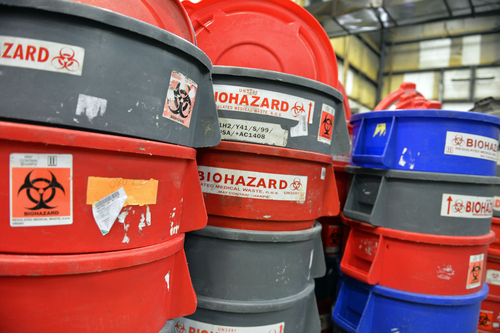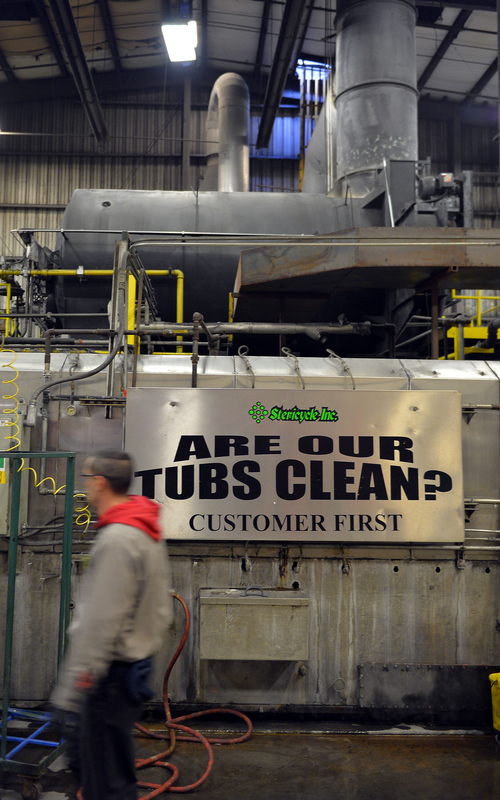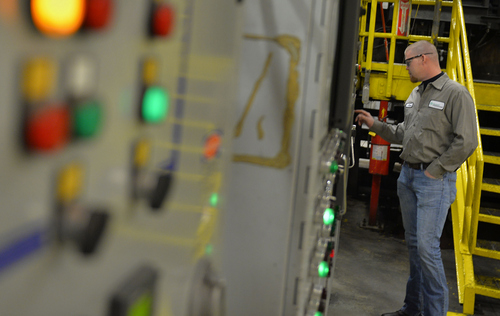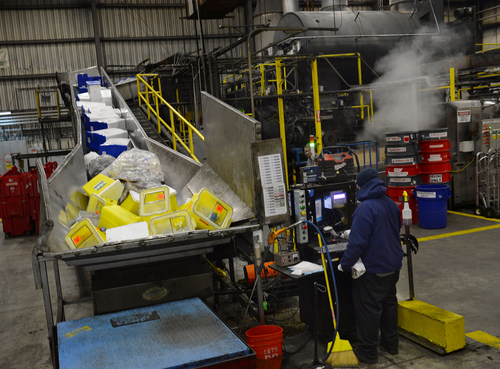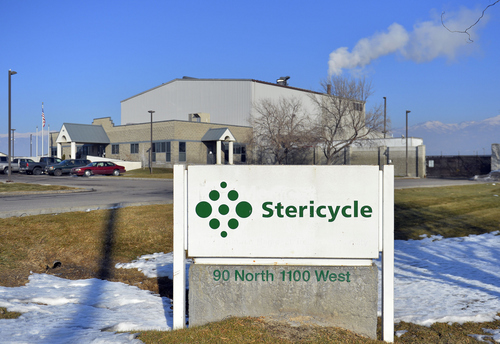This is an archived article that was published on sltrib.com in 2014, and information in the article may be outdated. It is provided only for personal research purposes and may not be reprinted.
North Salt Lake • Whether or not Stericycle pulls off a move to Utah's West Desert, its medical waste incinerator will remain for the time being in North Salt Lake's Foxboro neighborhood, where it is the focus of unrelenting controversy.
Company officials are proposing to upgrade the plant's aging emission control equipment to the best now available, as part of its permit renewal now under consideration by the Utah Division of Air Quality.
They also want to replace its electrical generator, in the hope of preventing the bypass events that occur when its incinerator malfunctions and emissions are vented straight into the air.
Power outages are the most common cause of these events, but Stericycle's current generator can't provide sufficient power to keep the system operating safely and the bypass is needed to prevent a catastrophic failure. A more powerful unit will prevent the "upsets" that release plumes the neighbors find so objectionable, said Jim Nold, the company's director of field services.
"Power outages are common. We can't control that. We have half a dozen a year, each lasting a few minutes," Nold said. "We operate for 8,000 hours a year and this is just minutes. We wish there weren't any, but in the big scheme of things we are talking a tiny percentage, and we report the emissions from upsets to the state."
The expected total cost of the proposed upgrades is $1.5 million. But Stericycle's critics hope to convince state regulators to not renew the company's permit on the grounds that incineration is no longer appropriate.
"We will fight that tooth and nail," said Brian Moench of Utah Physicians for a Healthy Environment. "They will have a war on their hands."
Moench's group and others say incineration releases dioxins, furans and other toxic compounds that no amount of emission control can eliminate.
"They are wasting their money because we will have them shut down before they can put in that equipment. There is no reason to continue incineration. There are other technologies," said Alicia Connell, a co-founder of Communities for Clean Air.
The main alternative to burning is using steam in autoclaves to disinfect waste. Today, very little medical waste is burned and just 14 commercial incinerators are available in the United States.
Stericycle, the world's leading handler of medical waste, operates six of them, along with 40 autoclaves. Most of the material burned at the Utah plant is pharmaceuticals and gear used for administering chemotherapy to cancer patients.
Incineration is the most costly method of disposing of medical waste, so if it does have to be burned, the company prefers processing it through other means, according to Selin Hoboy, vice president for legislative affairs.
Three-fourths of the waste Stericycle collects from its Utah customers is shipped out of state to be processed in an autoclave or by some other disinfecting technology, she said.
Critics point to new sterilization methods, such as ozone and chemical disinfectants, and shredders as preferable options.
But officials say Stericycle has evaluated them and found them wanting.
"They are not dependable and not scalable to a commercial size," Nold said. "You will have a problem with shredding because you hit something that won't shred and it has to be shredded. When you produce wastewater you produce something that needs to be treated."
Meanwhile, Nold contends incineration is the only option for chemotherapy agents.
"It's a fallacy to think you could replace [Stericycle's incineration] capacity with one of these other technologies," he said. "If a better way to trap the mouse comes along, we will give it a try." —
Air-quality town hall Wednesday
The Tribune's Jennifer Napier-Pearce will moderate a town-hall discussion on Utah's air quality challenges with a panel of experts at 7 p.m. on Wednesday, Jan. 29, at the Salt Lake City Main Library, 210 E. 400 South.
The discussion will be broadcast live on KCPW 88.3/105.3 FM and at sltrib.com. You can submit questions in advance by sending an email to utairquality@sltrib.com.


